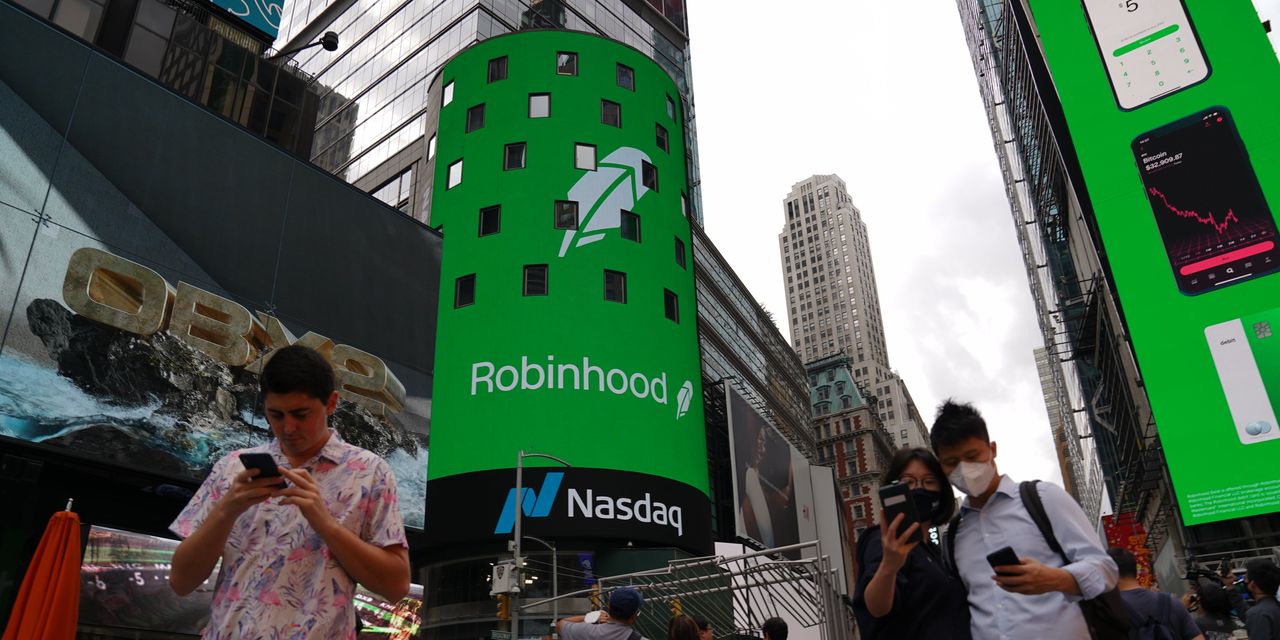Robinhood Markets Inc.,
the app that brought the markets to the masses, plunged in its trading debut Thursday after raising about $2 billion in one of the year’s most anticipated initial public offerings.
The company’s stock, listed on Nasdaq under the symbol HOOD, opened at $38 Thursday afternoon, and quickly traded lower. In recent trading, shares were down 12% at $33.40.
The company and its bankers priced the IPO on Wednesday evening at $38 a share, valuing Robinhood at about $32 billion. That level was at the low end of a range the company had targeted but well above the nearly $12 billion valuation it attained in a venture-capital round last year.
Breaking with a Wall Street convention to give individual investors only a minuscule slice of hot IPOs, Robinhood said it would allocate up to 35% of its offering to its own users. In the end, Robinhood customers got between 20% and 25% of the IPO, according to people familiar with the matter.
“One of our company values is ‘participation is power,’” Chief Executive
Vlad Tenev
said in an interview. “It didn’t seem right for us that IPOs had typically been reserved for the top 1%.”
That decision could make for more volatile trading on its first day as a public company. When
Facebook Inc.
went public in 2012, it sold about 25% of its IPO to individual investors. The stock tumbled a day after the trading debut and took more than a year to close back above its IPO price.
SHARE YOUR THOUGHTS
How do you expect Robinhood to perform this year? Join the conversation below.
Robinhood is trying to prevent a similar outcome by discouraging users from unloading shares they received in its IPO right away. The company warned users that they could be restricted from participating in future public offerings on Robinhood if they sell their shares within the first 30 days.
So far this year, billions of dollars have poured into the IPO market, with traditional U.S.-listed offerings on pace to raise more money than in any prior year, according to Dealogic.
But some deals have wobbled in recent weeks.
Xponential Fitness Inc.
last week priced its IPO $2 below the low end of its targeted range. Clarios International Inc. postponed its IPO this week, citing the market conditions. It was aiming to raise roughly $1.7 billion.
Write to Peter Rudegeair at Peter.Rudegeair@wsj.com and Corrie Driebusch at corrie.driebusch@wsj.com
Copyright ©2021 Dow Jones & Company, Inc. All Rights Reserved. 87990cbe856818d5eddac44c7b1cdeb8













































